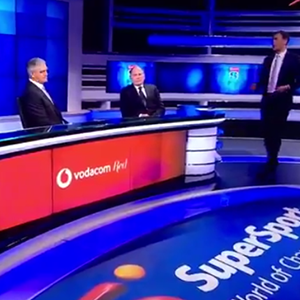
A few years ago, respected colleague and then editor of the Mail & Guardian Ferial Haffajee remarked in a column that Pension Fund Adjudicator Advocate Vuyani Ngalwana was not an affirmative action appointee.
The purpose of Haffajee's comment was to applaud Ngalwana's competence which she sought to contrast with the incompetence associated with so-called affirmative action appointees.
Ngalwana had an option to take the editor's applause and walk away feeling emboldened that he was not part of an incompetent black crowd. He didn't. Instead, he corrected Haffajee, clearly describing himself as an affirmative action appointee who was proud of it.
"Appointment on merit, on the one hand, and appointment by affirmative action on the other, are not mutually exclusive," Ngalwana responded.
"The incompetence of a black person (or woman) is no different from that of a white man. When a white man is incompetent, he should (assuming he had been given all the tools with which to do the job) be fired."
Ngalwana further argued that an incompetent black person should not be labelled an affirmative action appointment and be left alone as if it was expected. "Incompetence is incompetence. It knows no race. It knows no gender," Ngalwana argued.
He added that without affirmative action, black people, including him, would not rise to positions of significance in society because of the legacy of the National Party's apartheid policies.
Ngalwana's argument is today as solid as it was when he first made it. It's arguably the best defence of affirmative action I have ever read.
But why is affirmative action stigmatised? Two recent high-profile incidents point to the need to undo the stigmatisation of affirmative action.
The on air, in-studio protest of Ashwin Willemse, the SuperSport rugby commentator who walked out after he felt "patronised" by fellow commentators Nick Mallett and Naas Botha, raises questions about the stigmatisation of affirmative action.
The public debates about the incident have so far focused on whether Willemse was racially abused by the two. But overlooked in the debate are the implications of Willemse's own utterances on affirmative action.
"I've been in the game for a long time like most of us here. As a player, I've been called a quota for a long time and I've worked very hard to earn the respect I have now," Willemse said, as he walked out of the studio.
Willemse seemed to imply that there was a difference between a "quota" player on the one hand, and a player who has worked hard to earn respect on the other. He wanted his television audience, from whom he hoped to elicit sympathy, to understand that he belonged to the latter category, not the former. The truth, however, is that without affirmative action, Willemse's competence on the rugby field wouldn't matter.
He probably wouldn't have made it to top class rugby and the national team. Racial barriers – whether clearly erected or subliminally enforced – have to be met with transformative pressures to crack open spaces for all talented South Africans to realise their full potential. It's about inclusivity.
Whether Willemse or his tormentors who have described him as a "quota player" like it or not, affirmative action – which finds expression in the usage of quotas in some cases – has opened doors that would otherwise be closed to black people.
The other incident that calls for the affirmation of affirmative action happened at Imperial, the logistics firm whose chief executive officer Mark Lamberti was forced to resign for, among other things, calling a black woman an "employment equity" candidate.
Adila Chowan had been promised a promotion to the position of chief financial officer. Instead, a white man was appointed. Chowan was told she either had to wait her turn or quit the company.
In a meeting with Lamberti and other executives of the company, Lamberti referred to her as an employment equity employee – something that so offended her that she approached the high court for relief, arguing that her dignity was injured.
Judge Piet Meyer found: "It is undisputed that Mr Lamberti told Ms Chowan that she is 'a female, employment equity, technically competent, they would like to keep her but if she wants to go she must go, others have left this management and done better outside the company, and that she required three to four years to develop her leadership skills'."
During her testimony to court, Chowan stated: "I pride myself on the fact that I am a qualified, professional chartered accountant, I had built my career, I had been a chief financial officer. And in Mark Lamberti's eyes, I was being narrowed down because of my colour and being female."
Almost like Willemse, Chowan felt she had been "narrowed down" because she was black and, in her case, female too. Judge Meyer agreed with her: "As blatant and patent as discrimination was in the days of apartheid, so subtle and latent does it also manifest itself today."
The cases of both Willemse and Chowan demonstrate how the beneficiaries of affirmative action have been made to feel inadequate to the point that they could not be proud of the policies clearly meant to empower them as part of the broader post-1994 scheme to correct the wrongs of the past.
As "victims" of the transformative labels, they have focused on defending what they considered to have been attack on their competencies. In the process, the policy of affirmative action or its manifestation in the form of quotas or other measures remains vulnerable to ridicule.
It shouldn't be that way. Willemse and Chowan are not "victims". They are "beneficiaries" of legitimate, empowering and transformative policies that are meant to fix the legacy of racial discrimination. Without substantially fixing the apartheid legacy, racial tensions will continue to frustrate our national progress.
Willemse missed an opportunity in his studio exit address: he should have added how proud he was to be a quota candidate – and a competent one.
Chowan could have done better by explaining to Lamberti that the affirmative action he was referring to dictated that, faced with two qualified candidates in a company that was predominantly white, she should have gotten the job.
- Mkhabela is a political analyst with the Department of Political Sciences at the University of South Africa.
Disclaimer: News24 encourages freedom of speech and the expression of diverse views. The views of columnists published on News24 are therefore their own and do not necessarily represent the views of News24.




 Publications
Publications
 Partners
Partners






















